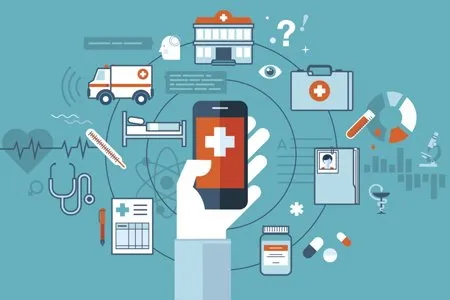
A wonderful news in the application of private 5G networks in enabling public services has been carried out by UK government, an extra £4.3M will be invested in supporting vital health and social care innovation in Liverpool, which is a part of a £7.2M project run of the UK government’s 5G Create project, the project will operate until March 2022, which will be disseminated to public bodies, leading to a greater use of private networks for public services with reduced risk, based on the DCMS Testbed and Trials programme.
DCMS Testbed and Trials programme
It is the government's nationwide coordinated investment programme in 5G. The programme is designed to leverage areas where the UK has a competitive strength, such as scientific research, engineering talent and the wide diversity of technology businesses.
By March 2020 UK had invested £200 million in 6 DCMS’s initial portfolio of Use Case Trials:
- 5G RuralFirst :
- 5G Rural integrated Testbed (5GRIT) :
- Worcestershire 5G Consortium :
- Smart Tourism
- AutoAir
- Liverpool 5G testbed: Sensor City is the leader of a consortium consisting of researchers from the University of Liverpool, NHS and social welfare agencies, local technology SMEs and the UK technology company 5G, Blu Wireless. The project has successfully delivered high-value technologies, including low-cost open source 5G networks, artificial intelligence, virtual reality and IoT, to vulnerable communities in the Liverpool area.
Aims of the project
Can 5G connectivity be cost-effective and efficient enough in the provision of healthcare and social services to make it affordable to give free access to those who cannot afford either telephone or broadband access?To address the question, many technique solutions will be needed, this project will focus on following points:
- Providing affordable connectivity with the necessary level of service
- Creating capacity within social care services
- Improving efficiency in health and care services
- Improving people’s quality of life and reducing social isolation
How will the goals be achieved?
According to the University of Liverpool, 5G technology will be used to remotely monitor a medical-grade device to treat and track health conditions. Moreover, part of Liverpool's 5G Create project will be an application which will teach anxiety reduction techniques, a remote triage service for GPs, wound care and treatment and sensor technology. The project will run until 2022.
Posted from my blog with SteemPress : http://blog.economie-numerique.net/2020/10/21/4-3m-for-5g-based-health-and-social-care-innovation-in-liverpool/
